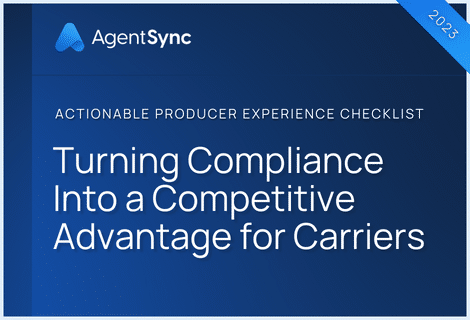

Not all insurance agents need to be dually licensed to sell securities. But here are seven reasons it makes sense to consider it.
Article Key Points:
- Securities licenses allow insurance agents to offer a broader range of products and services, including variable lines and retirement planning.
- With a securities license, insurance agents can stand out in the competitive marketplace and provide a more comprehensive review of clients’ financial needs.
- Securities licenses enable insurance agents to uncover new revenue streams by selling variable lines and other financial products.
- Having a securities license strengthens existing client relationships by addressing clients’ questions and providing a one-stop solution.
- Securities licenses help insurance agents become more valuable advisors by offering a full view of clients’ financial products and services.
We all know that you can’t sell, solicit, or negotiate insurance without a valid insurance license. At least, we should all know that! And if you need to brush up on some of the finer points of producer license compliance, we’ve got you covered.
Assuming you’re a licensed insurance producer, agent, or broker who focuses on lines of business like life insurance, health insurance, and long-term care insurance, you also (should) know there are certain types of insurance products you still can’t sell, solicit, negotiate, or even advise on. These are the products that fall under the variable lines umbrella, meaning they have a financial securities-based component and require a security license in addition to your standard insurance licensure.
What is a securities license?
A securities license is the credentials you need to sell securities products, including insurance products that have securities components. To obtain a securities license, you have to pass a series of FINRA exams, depending on what exactly you plan to do.
Do insurance agents need a securities license?
As usual, it depends. For many insurance agents, the simplest way to deal with these types of variable insurance products is to not deal with them at all. Certainly, you can refer clients to someone with the credentials to advise on, and sell, these lines of business. The downside to that strategy is that you might be turning away valuable business. We’re not saying it’s easy to just go out and get your Series 6 or Series 7 securities license, but in some cases, the juice can be worth the squeeze. Here are seven reasons it makes sense to consider adding a securities license to your credentials. Read on to see what you can do with a securities license in addition to your insurance license.
1. Expand your service portfolio
With just a life and health insurance license, you’re limited to offering insurance products to your clients. Even if you know there are other products available that might be a great fit for a specific client, you can’t discuss, advise, or offer them. But with a securities license, you can!
A securities license allows you to offer a broader range of products and services, both within insurance (like variable lines) and outside of it (like retirement planning with non-insurance products). Becoming a dually licensed agent or broker is like going from a specialty store to a department store: You’ll be able to assist clients with many more of their needs under one roof, which comes with some obvious benefits.
2. Stand out in the competitive insurance marketplace
With all of the new ways for consumers to access insurance and financial products, the current marketplace is more competitive than ever. Your clients could easily purchase variable lines of insurance and securities products through an online, faceless broker – or even through a mobile app.
Still, despite the rise in self-service options, consumers (particularly those purchasing personal lines like health and life insurance) still largely prefer to work with a trusted, human, licensed insurance agent. When you’ve got both an insurance license and a securities license, you’ve got a competitive edge that helps clients piece together the right mix of financial products for their current life stage and planned future needs.
3. Uncover new revenue streams
It’s no secret (OK, it might be a small secret) that being an insurance agent is a great career. The necessary nature of insurance products makes selling them fairly recession-proof. Most producers know they can increase their book of business, and their revenue, by getting licensed to sell more types of insurance. The same is true when you add in the ability to sell variable lines and other financial products that require a securities license.
4. Strengthen existing client relationships
Have you ever had a client come to you for advice on, or seeking to purchase, a product you aren’t licensed to sell? This can be an issue, and one you really have to be careful to avoid, as clients may feel so secure in their relationship with you that they broach topics you aren’t qualified to discuss. Rather than sending clients elsewhere for answers to these questions (and losing out on potential revenue), a securities license will allow you to address these types of questions. By providing a one-stop solution, you can foster longer, deeper relationships with your clients.
Additionally, given that current annuities sales regulations – from fixed to variable and every kind in between – require you to collect more data on your clients to determine whether an annuity is in their best interest, doesn’t it make sense that you can give them a more comprehensive review?
5. Become a more valuable advisor to your insurance clients
Insurance producers in life and health lines are always striving to be seen as more than just salespeople by their clients. When you’re dealing with such important life decisions as which type of and how much life insurance to purchase, clients are looking for someone who can explain all their options and help them choose the right one. By focusing on moving insurance products alone, you risk being pigeonholed as the local annuity agent.
When you’re able to bring variable lines of insurance into the mix, for example, variable universal life insurance, variable annuities, and registered index-linked annuities, your clients can feel more confident that you’ve put all their options on the table. You can also be a better advisor when you’ve got a full view of your clients’ retirement planning products and services, and the ability to show them products that might fill existing gaps. You can’t do this without the right securities license, but with it, a whole new world of value-add services opens up to you and your clients.
6. Avoid losing business
If you’re focused solely on life and health insurance products but don’t have the requisite securities license to sell variable lines, then you have to refer your clients elsewhere to get their questions answered about these products and, potentially, to purchase them. So, what happens if they start working with someone who’s dually licensed and decide they prefer to get all their life and health insurance needs met by a single person? Not to mention, an agent or broker who’s licensed in securities can help them with their needs far beyond securities-linked insurance products.
Having a securities license allows you to keep these conversations in-house. You can round out your accounts by adding different types of financial products related to investments and retirement, along with the insurance your clients already have.
7. Be secure in your legal standing
The financial services world, including insurance and other investment products, is fraught with regulations. Advising clients on areas where you’re not licensed can lead to potential legal issues. But with a securities license, you can confidently and legally provide advice across a broader spectrum of financial products. There are lots of benefits to being able to do this. And doing it in compliance isn’t just a “nice to have” feature.
FAQs for insurance producers who want to become licensed to sell securities
With the above reasons in mind, you may see the value in getting a securities license in addition to your current insurance license(s). Here are some frequently asked questions and their answers to get you started.
What is a securities license?
A securities license is issued by the Financial Industry Regulatory Authority (FINRA) and provides someone the legal right to sell securities (stocks, bonds, variable annuities, etc.). A securities license is not an insurance license and agents, brokers, and producers who want to sell both traditional insurance and traditional securities and/or a combination of securities-backed insurance products will need to obtain both an insurance license and a securities license.
What can you do with a securities license?
A securities license allows you to sell insurance products that have an investment component, such as variable life insurance and registered indexed-linked annuities (RILAs). These products involve investment risk and their value can fluctuate based on the performance of underlying investment options chosen by the policyholder. Because of the added risk, these products are registered with the Securities and Exchange Commission (SEC) and regulated by the Financial Industry Regulatory Authority (FINRA). Thus, anyone selling these products needs a securities license.
What securities license is required for a life insurance producer to sell variable life insurance?
To sell variable life insurance, a life insurance producer needs a Series 6 or Series 7 securities license, issued by FINRA. This requires passing a comprehensive exam that covers various aspects of securities regulations, and is in addition to the required life insurance licensing credentials the producer already holds.
Do you need a securities license to sell variable life insurance?
Yes, because variable life insurance has an investment component and contains substantial levels of risk to the policyholder, it’s regulated by both state insurance departments and federal securities laws. This means, to sell variable life insurance, an agent has to hold both a life insurance license from their resident state (and nonresident states in which they work), and pass a FINRA Series 6 or Series 7 securities exam.
Are insurance policies considered securities?
Most insurance policies, ranging from auto and home insurance to term life and whole life insurance, aren’t considered securities. This is because there’s no risk involved to the policyholder based on fluctuating securities markets. On the other hand, insurance products with an investment component, such as variable life insurance and variable annuities, are considered securities. These products are regulated by the Securities and Exchange Commission (SEC) and require the agent to hold a securities license issued by FINRA.
What does it mean to be securities licensed?
Being securities licensed means that you’re authorized to buy, sell, and advise customers on securities products. These can include pure securities products like stocks and bonds, as well as some types of insurance products that include an investment component, known as variable insurance products. Being securities licensed certifies that you’ve met the educational, ethical, and examination standards that FINRA sets for securities brokers.
What license is required to sell variable annuities?
You must pass a FINRA Series 6 or Series 7 examination and be registered with a broker-dealer as well as have a state-issued life insurance license. Both the securities license and the life insurance license are required to sell variable annuities.
Take the stress and cost out of broker management
AgentSync Manage offers enhanced variable insurance support that unifies FINRA and NIPR data into a single profile, providing a consolidated view of broker eligibility for informed decision-making, accelerated onboarding, and compliance. Watch a demo to see for yourself today.

